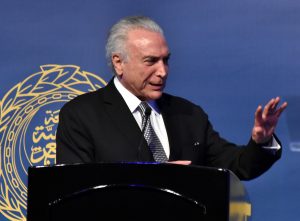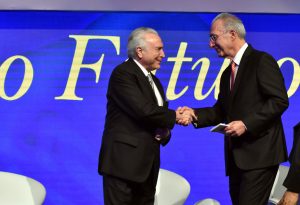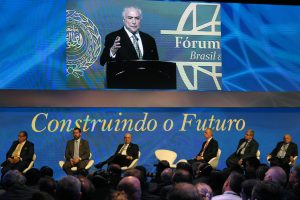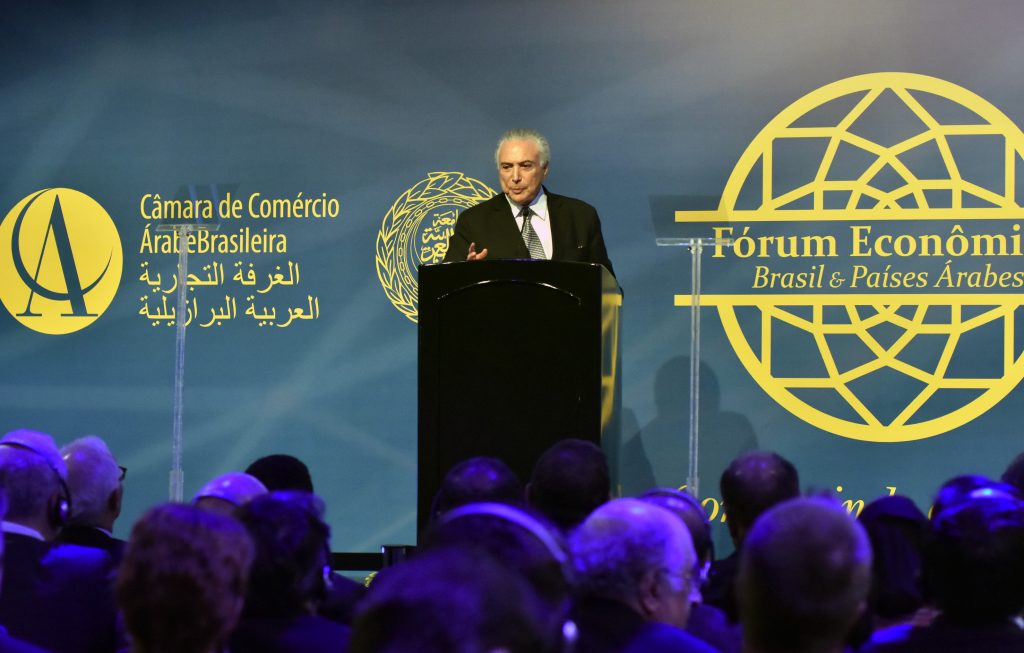São Paulo – This Monday (02), president Michel Temer has said that Brazil has “mature relations” with the Arab countries, which “transcends different administrations.” “We have strong human connections, a fluid political dialogue and solid economic relations,” he stated during the Brazil-Arab Countries Economic Forum – Building the Future, organized by the Arab Brazilian Chamber of Commerce at Hotel Unique, in São Paulo.

The son of Lebanese immigrants, Temer remarked that to talk about the strengthening of Brazil’s ties with the Arab countries is “natural” to him. “May the discussions here help to build, as stated by the forum’s theme, the future of Brazil’s relations with the Arab countries,” he declared. “I’m absolutely convinced that this future will be auspicious since the present is vigorous and dynamic. Our relations are prosperous but will be even more after this event,” he added.
The president recalled that his administration’s Foreign minister, Aloysio Nunes, recently visited the Middle East and advised Temer to also go to the region. “He said to me: you will see that the investments will come quicker. So, not trying to hint anything to the ambassadors, if I get an invitation, I will soon go to the Middle East,” he said, addressing the many diplomats from Arab countries in the audience.

Temer reinforced that the Arabs have in Brazil a “reliable partner” and mentioned, as an example, food security. The country is a major supplier of food products to the region. He added that this partnership goes beyond trade and that Mercosur is negotiating free trade agreements with Jordan and Lebanon, and that it has resumed negotiations that were stalled with Morocco and Tunisia. “We wish to increase trade and investments,” said the president.
Strategic partnership
Upon welcoming Temer to the event, the Arab Chamber’s president, Rubens Hannun, thanked him for attending and remarked that the Arab countries accounted for 10% of the record surplus recorded by Brazil in 2017. “The Arab countries must be recognized as strategic for foreign trade and generation of revenues to Brazil,” he said.

Hannun added that the relations with the region must be considered a priority and argued for the negotiation of new agreements, for instance, in the investments area.
Temer, in turn, said that Brazil escaped from a two-year recession period and that the country “is here to stay.” “Invest in Brazil because it’s worth it, we will grow even more,” he told the Arab entrepreneurs in attendance. The president said that Brazil is a “peace and dialogue” country. “And out of this stance we have acted in the Middle East and North Africa,” he stated.
In this sense, the Union of Arab Chamber’s president, Nael Kabariti, thanked the support given by Brazil to the Arab causes, especially the independence of Palestine. “I would like to thank and to speak to the Arab world to invite it to invest in Brazil,” he stated. “Our markets are open to you (Brazilians), as well as our hearts,” he concluded. The Union is one of the main corporate organizations of the Arab countries, and the Arab Brazilian Chamber is a member.
Translated by Sérgio Kakitani




